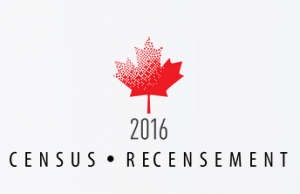2016 Bi-monthly Update Series: November/December
In our 2015 year-end update, we promised to provide bimonthly updates to new resources and services added to Clicklaw in those two months. This post concludes our 2016 series with a glimpse into some of the changes and updates made in November and December. We plan to continue these updates into 2017.
Jan-Feb | Mar-Apr | May-Jun | Jul-Aug | Sep-Oct | Nov-Dec

by PLAN Institute
The Registered Disability Savings Plan (RDSP) is a Canada-wide registered matched savings plan specific for people with disabilities. This helpline will help answer questions about the RDSP and the Disability Tax Credit (DTC) pre-requisite.

by Civil Resolution Tribunal
The Solution Explorer is a tool for helping people manage and resolve disputes in BC. It’s now available to beta test for small claims problems. The beta version won’t let you make a claim with the CRT yet. Use it to find free legal information and tools about small claims matters.
![]() Common Question: Can I get a legal order to keep an abuser away from me?
Common Question: Can I get a legal order to keep an abuser away from me?
Effective December 5, 2016, the Ministry of Justice will coordinate the service of protection orders under the Family Law Act, when the order is issued without the respondent (i.e. abuser) in court. This is to ensure that the inability to hire a process server does not hinder service. This will be in effect for one year, and may be extended for two additional one-year periods, at the discretion of the Ministry. Read more at the Common Question page.
![]() Common Question: I’ve been turned down for PWD benefits. What can I do?
Common Question: I’ve been turned down for PWD benefits. What can I do?
If the Ministry has turned down your application for the Persons with Disabilities (PWD) benefit, you have the right to appeal. You have 20 business days, from the day you receive the letter telling you that your application has been rejected, to give the Ministry your reconsideration request. You must get the reconsideration request form from a Ministry of Social Development & Social Innovation (MSDSI) office. Read more at the Common Question page.

by Justice Education Society of BC
A series of information sheets about legal questions around housing. The help guides includes topics such as: Being a Tenant, Discrimination and Renting, Buying a House, Selling your House and Foreclosure.

by Legal Services Society
This guided pathway will help you figure out what to do next if you’ve been served with (given) court documents in a family law case. It will lead you to the best available resources for your particular situation, including online self-help guides or in-person services.

by McGrady & Company
This guide informs you of your rights when dealing with the police at public demonstrations. It is designed to help you exercise your right to engage in nonviolent civil disobedience, and avoid committing any criminal offence. It is also designed to assist you in the event you are arrested.

by BC Registry Services
A step-by-step guide to the Societies Act Transition Application.
 This past year, your household would have received some form of the 2016 Census, which included a question that could stump a few people: Are you married? Do you have a common-law partner?
This past year, your household would have received some form of the 2016 Census, which included a question that could stump a few people: Are you married? Do you have a common-law partner? In BC, If you have lived together in a “
In BC, If you have lived together in a “
